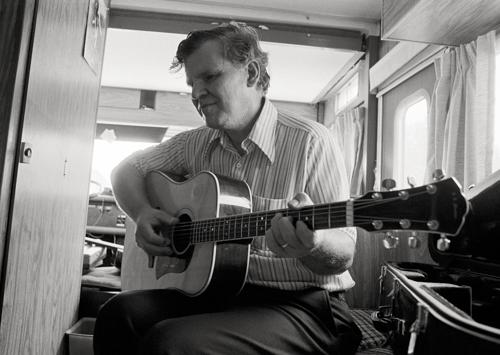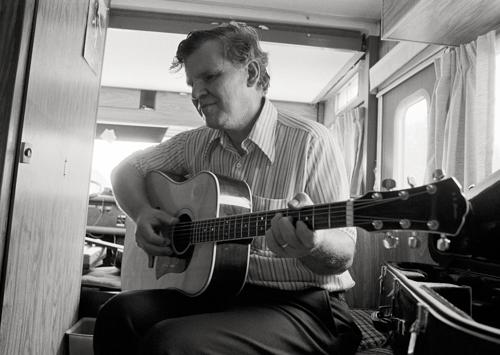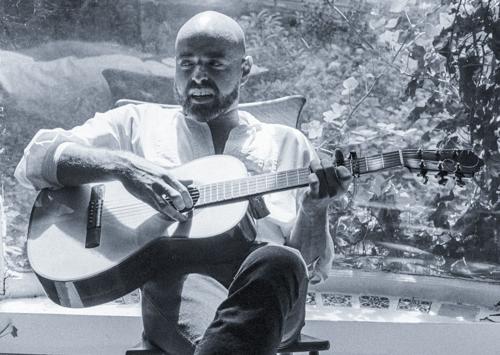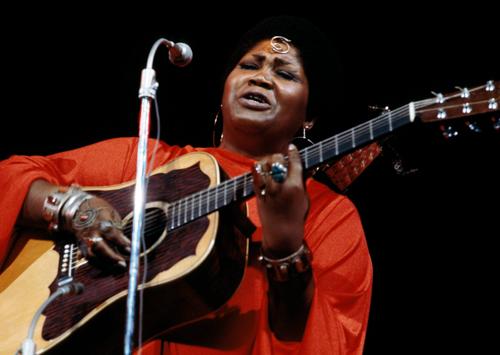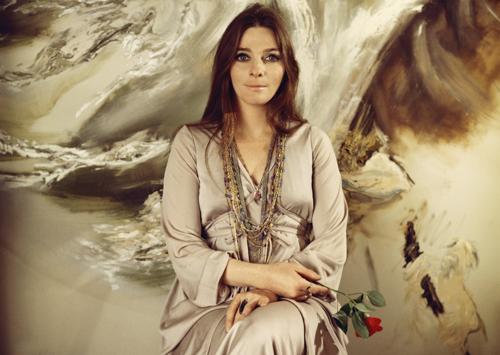Listen to New Voices on Studs Terkel our partnership with 826CHI-here! Read the Story
Showing 1 - 15 of 36 results
-
Studs Terkel interviews Doc Watson about his music career
Dec. 10, 1971 Studs Terkel interviews Doc Watson about his music career. The interview includes recordings and live sections of different songs that have shaped his career.
-
Studs Terkel discusses folk music with Doc Watson
Feb. 20, 1969 Studs Terkel interviews and discusses the history and cultural significance of folk music with Doc Watson. Topics include Watson's personal history and biography, the origins of some of the songs he sings, sacred music.
-
Shel Silverstein discusses his books, children's literature, and art; part 2
Nov. 20, 1961 Shel Silverstein discusses his books and children's literature, and art. Shel Silverstein discusses his contemporaries, art, and life experiences.
-
Presenting the Old Town school of folk music
Oct. 8, 1963 Terkel comments and presents the Old Town school of folk music
-
Ollie Gilbert and Jimmie Driftwood discuss music ; part 2
May. 25, 1964 Ollie Gilbert, folk musician, and Jimmie Driftwood, folk songwriter and musician, discuss and folk music. They also discuss instruments such as banjos, guitars, and musical bows. The two musicians also talk about how music evolves over time and as it is passed through generations.
-
Ollie Gilbert and Jimmie Driftwood discuss music ; part 1
May. 25, 1964 Ollie Gilbert, folk musician, and Jimmie Driftwood, folk songwriter and musician, discuss music including how Gilbert's family has passed down music through the generations.
-
Odetta discusses her music career
Mar. 12, 1970 Folk singer Odetta discusses her music; her songs "Another Man Done Gone," "Riding in My Car (Car Song)," "Gallows Pole," "Kaeshite Okure Ima Suguni," "Sometimes I Feel Like a Motherless Child," "Battle Hymn of the Republic," and "Whyn Why" are played throughout the program.
-
Mazatl Galindo and Alejandro Galindo discuss traditional and folk music from South and Central America
Nov. 23, 1982 Chilean folk songs have been removed due to copyright restrictions: "If We Are Americans;" a flute song for the harvest celebration; the song "Jacinto Cenobio;" song ["Winos Poinas"]; a Mexican flute song; the song "La Fiesta De San Benito;" the song "La Pulque;" and the song "El Condor Pasa." but are discussed within the program.
-
Margaret Barry discusses her time as a singer and banjo player
Oct. 9, 1961 Margaret Barry and Michael Gorman, discuss traditional Irish music and their careers as musicians.
-
Lino Chavez and his Mexican Folk Ensemble discuss music, culture and performing
Aug. 12, 1959 Lino Chavez and his Mexican Folk Ensemble discuss, through a translator, Mexican culture and music and perform their song "El Jarabe" at 2:50, "El Tilingo" at 13:50, "Maria Chuchena" at 23:05, "El Cascabel" at 29:31, "La Bamba" at 38:39, and "El Ahualulco" at 47:55. These songs have been removed from this recording.
-
John Hammond and John McDonough discuss music
1970 Music producer John Hammond and jazz critic for Down Beat magazine John McDonough discuss: Hammond's career; the artists he worked with; the artists he was the first to sign; social reform; and more. The following musical excerpts are played: "7 Come 11"; "Sauce"; "Talking Union"; "Blowing In the Wind"; "Today I Sing The Blues"; and "Live Embers".



